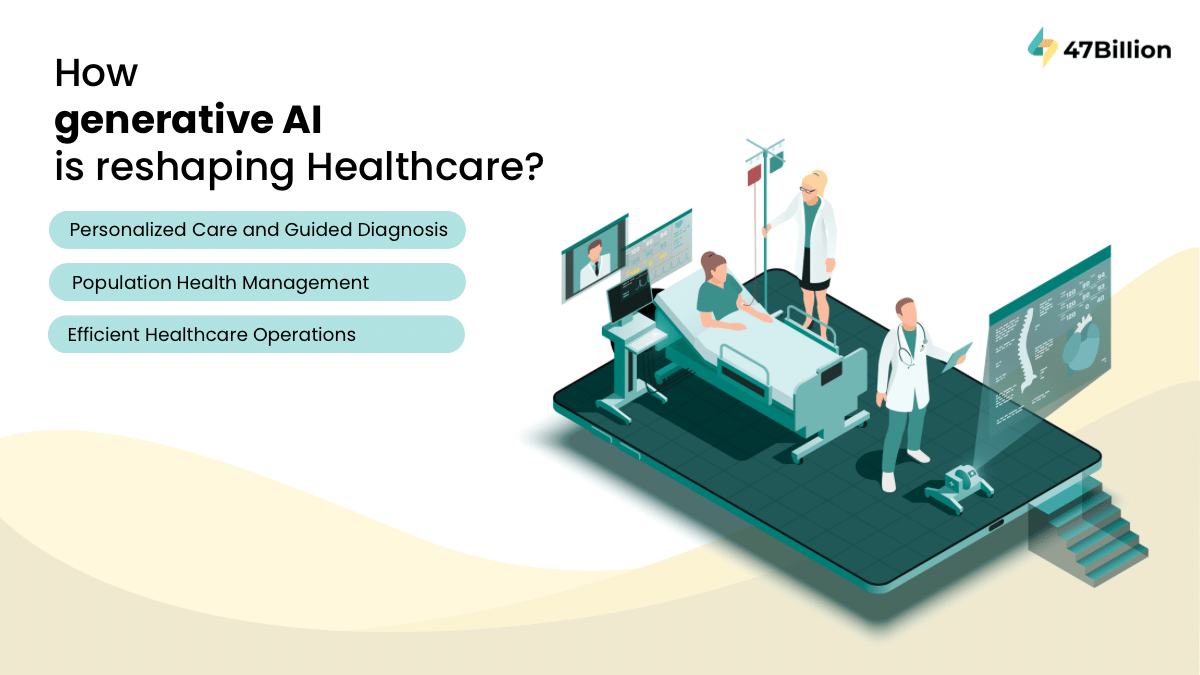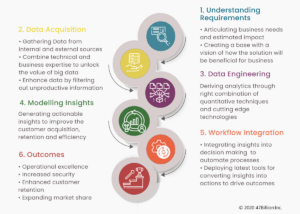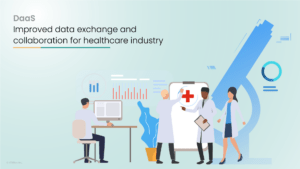In April, at a convention center in Chicago, thousands of attendees watched as a new generative AI (gen AI) technology, enabled by GPT-4. It modeled how a healthcare clinician might use new platforms to turn a patient interaction into clinician notes in seconds.
The application adds the patient’s information in real-time, identifying gaps and prompting the clinician to fill them in. This effectively turns the dictation into a structured note with conversational language that the clinician can review.
Gen AI is becoming a meaningful tool that helps unlock a piece of the unrealized $1 trillion of improvement potential in the industry.
Generative AI relies on deep-learning algorithms to create new content such as text, audio, code, etc. It can take unstructured data sets that is the information not organized according to a preset model and analyze them, representing a potential breakthrough for healthcare operations rich in unstructured data such as clinical notes, diagnostic images, medical charts, and recordings. These unstructured datasets can be used independently or combined with large, structured data sets like insurance claims.
Like clinician documentation, several cases of generative AI in healthcare are emerging. Generative AI unlocks potential by automating tedious and error-prone operation work, by bringing years of clinical data to a clinician’s fingertips in seconds, and modernizing health systems infrastructure.
To realize that potential, healthcare stakeholders should consider integrating these models into their existing analytics and AI road maps and identify risks in implementing them.
Let’s explore the primary use cases in the healthcare industry –
Payers –
Today, consumers demand personalized and convenient services from their health insurance companies. Generative AI can help private payers’ operations perform efficiently while providing better services to patients and customers.
- Healthcare Management – Generative AI can help synthesize clinical notes and medical information for care managers and generate care plans.
- Claims Management – It can help create summaries of manual and denied claims issues and sources to identify solutions. It can aggregate information for complex claims to reduce processing time. Also, it automatically generates summaries and outcomes for prior authorization and draft responses for relevant inquiries.
- Customized Summary – It can develop custom coverage summaries for specific queries asked by customer service organizations, deploy adaptive chatbots and intelligent routing to help answer the service questions for providers. Also, suggest clinicians based on parameters such as coverage, location, preferences, etc.
- Relationship Management – Generative AI can compare plans/product features and generate standard communications such as reports, claims denials, etc.
- Corporate Functions – Generative AI applications can generate HR self-serve functions, for example, first-line interactions/responses, etc. It can synthesize proposal requests and responses, automate accounting by extracting relevant numbers, generate reports in standard formats, and internally summarize updated risk/legal processes as regulation changes.
Providers –
For providers specially the hospitals and physician groups, generative AI has the potential to affect everything from the continuity of care to clinical operations and contracting to
Within hospitals and physician groups, gen-AI technology has the potential to affect everything from continuity of care to clinical operations and contracting to corporate functions.
- Automated Operational Tasks – It can help summarize discharge information and follow-up needs for post-acute care, generate summaries for referrals, and accumulate specialist notes for primary care doctors.
- Quality Care Delivery – It can help recommend custom risk considerations for patients based on their medical history and existing medical literature.
- Value-based Care – helps improve documentation accuracy and leverage structured and unstructured data to create patient educational content.
- Clinical Operations – Solutions based on Generative AI can help generate post-visit summaries and instructions and generate and synthesize care coordination notes. They can also help maintain history EMRs and dictations, create educational material on disease identification and precautions, and develop personalized training journeys for clinicians across program requirements.
- Population Health Management – Population health management allows providers to predict and identify patients at risk for hospital admissions, create patient-specific care plans, and understand their patient population’s health outcomes. Generative AI in healthcare can enhance population health management strategies. Policymakers can access detailed demographic information to gain deeper insights into specific health profiles and needs. They can scrutinize large data sets and identify these populations’ patterns, trends, and disparities.
Patients –
- Generative AI-based solutions can help analyze patient feedback by summarizing and extracting themes from online text/images, creating personalized care instructions, visuals, and communications, and introducing specialized chatbots for patient interactions and discussions on nonclinical topics.
The advent of generative AI has brought transformative advancements and opportunities for the healthcare industry. With its ability to generate novel data, improve diagnostics, optimize treatment strategies, and expedite drug discovery, generative AI is reshaping the health landscape.
From enhancing medical imaging to personalized care, it holds the potential for improving outcomes. As this technology continues to harness the capabilities of generative AI and address the associated challenges, we are poised to witness a new era of innovation and breakthroughs in healthcare.
To learn more about it, connect with 47Billion and build robust generative AI solutions tailored to your business-specific use case in healthcare, staying at the forefront of advanced healthcare delivery.




